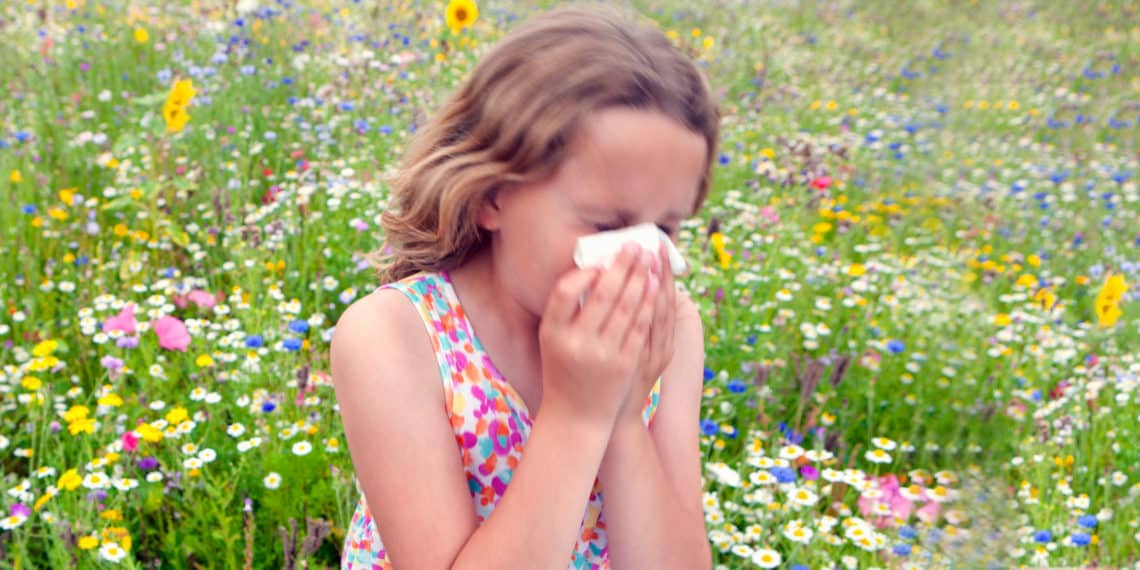If you have gardening in your DNA, you know that problems like allergies aren’t going to stop you from communing with Mother Nature and enjoying her endless bounty. When a fragrant flower blooms, I’ll stick my nose right into it, despite the fact that I’m allergic and asthmatic. And when the garden calls me, I answer, despite a stuffy nose or itchy eyes.
I have found over the years as an avid gardener that there are steps you can take to make your garden enjoyment less problematic in the allergy department. Board-certified allergy and asthma specialist Dr. Neeta Ogden agrees.
“Gardening can definitely be enjoyed, despite allergies,” she says. “It’s very important that people continue the activities they love—even with allergies—as these activities bring us emotional happiness and can counter the negative stress of any medical condition. People just need to approach it wisely and with preparation.”
Here are tips for combatting outdoor allergens and enjoying the great outdoors with as few symptoms as possible.
Know when to garden. Avoid gardening early in the morning or at dusk when pollen counts are highest, advises Ogden. “Plants produce most of their pollen in the early morning and late evening, so the pollen output of all plants is highest between 5-10 am and again around dusk. That said, our allergy seasons have become so severe with all–day spiking pollen counts, that the distinction in time of day is becoming increasingly less relevant.”
Wear a hat, sunglasses, gloves and gardening shoes. Protecting your head, eyes, hands and feet limits exposure by creating a barrier between yourself and the pollen, says Ogden. “This diminishes your body’s exposure to pollen as you garden and its access to those specific parts of your body that can trigger symptoms.”
Wash or wipe away pollen after gardening. As soon as you finish gardening, remove microscopic pollen by taking off your clothes and either washing your hair and body well or wiping down with baby wipes and using a saline rinse on your eyes, advises Ogden.
“Wash your hair thoroughly with shampoo and use a cleanser on your face or gently cleanse your upper eyelids, eyelashes and eyebrows with baby wipes. To rinse your eyes, use a saline solution for contact lens wearers. Stand over a sink and tilt your head to the side and irrigate your eyes to rinse them out. If possible, look for a preservative-free saline rinse, so it’s less irritating.”
Be prepared and armed. “Taking allergy medications will help significantly,” says Ogden. “If you are a mild allergy sufferer, taking medication 60 to 90 minutes before gardening may be enough. More severe sufferers will need to be on a nasal spray and oral medication at least two weeks before the season begins. People with ocular allergies need to have their eye drops on hand and use them the day they garden or daily, if they have regular symptoms. For people who experience breathing difficulties, rescue inhalers should be on hand. Finally, for very severe sufferers, allergy shots have been successful at eliminating seasonal allergies completely.”
Stick to your allergy medication regimen. “It’s important to stick to a plan for the entire season – even if you are eventually feeling better,” says Ogden. “I see a lot of allergy patients who may eventually feel good or experience a lull in their symptoms and then forget to take their allergy medications when they go outside. This often leads to allergy symptoms rearing their ugly heads again, so it’s important that you make a conscious effort to be aware and not complacent about your allergies.”
Pay attention to indoor allergens. “Allergens lurk year-round in our homes,” says Ogden. “Seasonal allergy sufferers probably have, or at some point will develop, indoor allergies to things like mold and dust mites, so I advise all of my allergy patients to protect themselves indoors by regularly cleaning their homes, dusting with damp cloths and using allergen barrier bedding, mattress and pillow protectors, such as Allerease.”
See a board-certified allergist. “It could be very helpful for an allergic gardener to see a board-certified allergist to discover what specific trees, grasses, and weeds they are allergic to,” says Ogden. “This will help them modify their garden in such a way that they might be exposed to less allergenic species.” A helpful resource in this area is The Allergy Fighting Garden: Stop Asthma and Allergies with Smart Landscaping by Thomas Leo Ogren.
Monitor the pollen count. Most weather apps have daily pollen updates. Avoid long days gardening outside when the counts are especially high. Other good resources include the American College of Allergy Asthma and Immunology and the Allergy and Asthma Foundation of America.
Julie Bawden-Davis is a garden writer and master gardener, who since 1985 has written for publications such as The American Gardener, Organic Gardening, Wildflower, Better Homes and Gardens and The Los Angeles Times. She is the author of seven books, including Reader’s Digest Flower Gardening, Fairy Gardening, The Strawberry Story, and Indoor Gardening the Organic Way, and is the founder of HealthyHouseplants.com.

